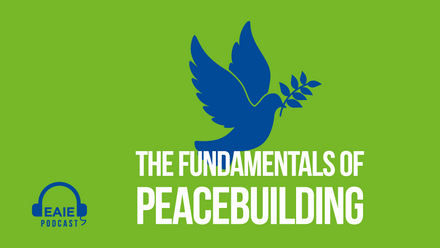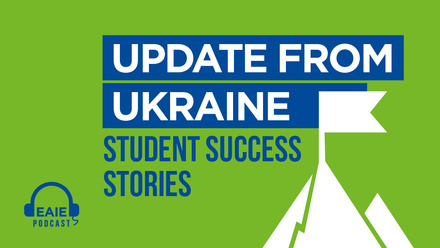5 tips for continuing mobility during the pandemic

The outbreak of COVID-19 has fundamentally altered the global higher education landscape in 2020. It has brought an immense challenge to institutions around the world, first in the form of repatriating students abroad on short notice, and now having to deliver mobility opportunities under the 'new normal'. With restrictions on travel and social distancing measures, we need to fundamentally change how we operate.
While programmes such as Erasmus+ embraced the benefits of virtual mobility, this is not about replacing physical mobility in the long term. The European Parliament’s Committee on Culture and Education recently issued a statement that made the importance of physical mobility very evident, stressing why it cannot and should not be replaced.
Students remain interested in pursuing mobility during their studies. While universities around the world reopen, many students are deciding to go ahead with their travel plans, concerned about missing out on the experience of campus and living abroad, and as such many institutions are looking into ways to keep the momentum and rebuild their offer.
The pandemic has not dampened the spirits of students wanting to explore the world
As COVID-19 presents new obstacles, in this article, we try to share some insights into what to consider when preparing to send students abroad.
1) Get your processes in place
Many institutions already have crisis management/emergency policies in place, having experienced national disasters and other emergencies in the past. The growing risk due to the pandemic requires institutions to review their procedures and policies considering health guidance plus national and international policies. Risk management processes pre-travel and robust systems to communicate with and support students while they are abroad should be implemented, insurance policy reviewed, and agreement worked out on how the academic departments will validate the virtual and shortened period abroad.
To succeed in the pandemic era, you will need to consider a range of scenarios to plan and prepare your international experience offer. As the uncertainty remains, you'll also want to prepare for the worst-case scenario in which students may need to be supported with repatriation.
2) Globally-engaged staff is intrinsic to success
Sending and managing students abroad has always been a challenging task. Now more than ever, specialist support, expertise and diversity of staff with knowledge of various languages proves helpful to navigate the ever-changing world environment. Professionalising support and academic services enables institutions to significantly scale up over the years, but also effectively respond to times like these. Clear communication and close working relationships with faculties, other academic units and professional services such as health and safety and welfare, are essential to ensure duty of care and support to students.
3) Having support systems
The pandemic has impacted countries around the globe, bringing close attention to the need for instant and actionable risk intelligence. It is recognised that not all universities would have the capability to manage and respond rapidly within their own internal resources. The key to success is the commitment to investing in services and partnering with organisations that can provide resources, such as expert-led briefings and articles, intelligence alerts, or an interactive dashboard with country-level COVID-19 information, to name a few examples.
This expert support helps the team and students to stay up to date as international travel restrictions are ordered or lifted, get the latest in-country movement restriction updates, and find out which airlines have routes with suspended or resuming services and additional expert insight. Most companies also provide 24/7 support services via phone and apps that are particularly helpful in a rapidly changing environment.
4) Inspire, innovate, impact
For many students, mobility might not be an option at this time or at all. Virtual projects can serve as an effective option to develop students' cultural awareness, inter-cultural collaboration and transversal or soft skills. Whereas virtual projects have in the past often been a stand-alone project or blended with physical travel later in the year, virtual mobility provides an opportunity for enhanced cultural immersion and knowledge development.
Coventry University has a strong portfolio of Collaborative Online International Learning (COIL), with over 3500 students undertaking this type of virtual exchange every year, but since the start of the pandemic, we swiftly shifted our focus to bringing other innovative approaches, such as virtual field trips. Through the Virtual World Tour project, we are not only aiming to ignite the student's interest in travelling and exploring cultures, but also to enable them to build academic networks and communities of learning from the comfort of their room. Bringing the world to students, in this project we seek to also provide support for students in combating isolation and enable the development of a sense of belonging amongst their peers.
5) Work with your partners
Last, but by no means least, creating great relationships with institutional partners is critical to building valuable international experiences. In a world where previously unseen borders are becoming more prominent than ever, the work undertaken by staff enabling international experience is forming stronger global communities that will benefit our students and institutions well into the future.
Since the start of the pandemic, it has been encouraging to see the global education community reach out and come together across various technological platforms to provide support not only to each other, but also to all students. The pandemic has not dampened the spirits of students wanting to explore the world. The current climate has in fact been the birthplace of many new innovations and created new ideas to foster global engagement in virtual formats and given rise to a variety of support services enabling COVID-19 secure travel and immersive experiences.






